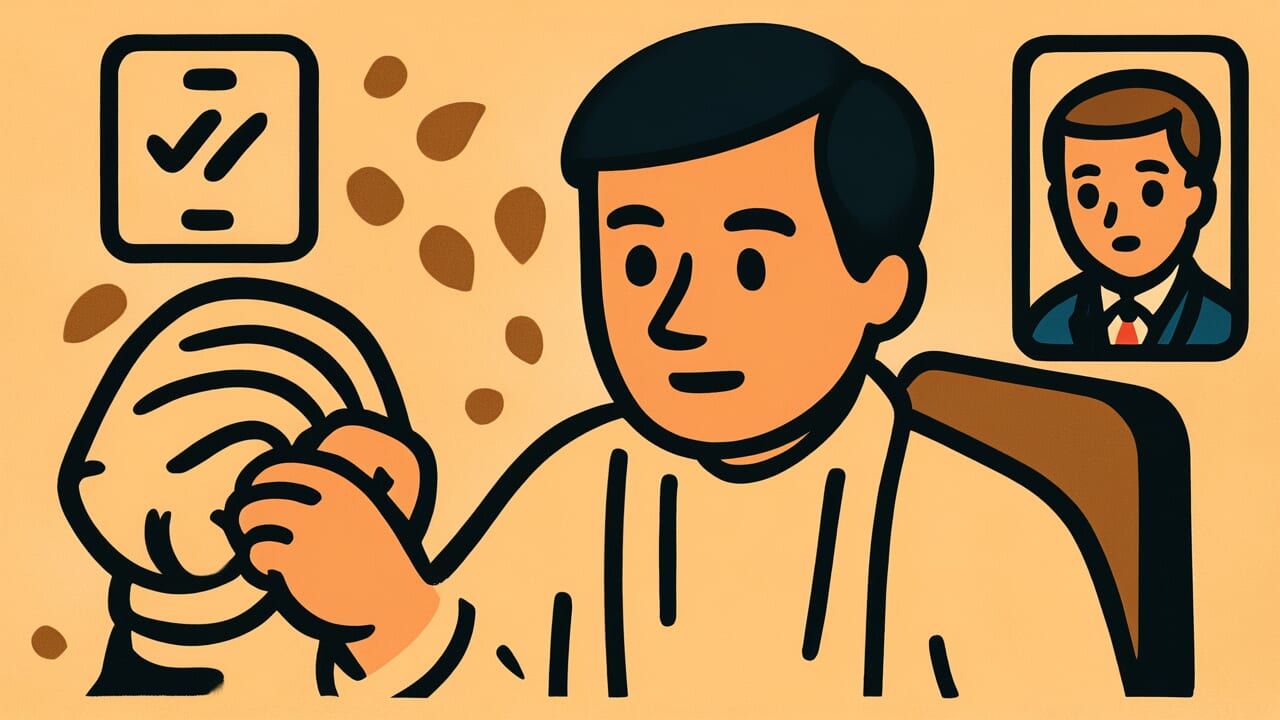How to Read “Repay resentment with virtue”
Urami ni mukuyuru ni toku wo motte su
Meaning of “Repay resentment with virtue”
This proverb teaches that when someone directs resentment or ill will toward you, you should respond with kindness and compassion rather than returning their hatred.
If you retaliate when someone does something bad to you, the chain of hatred will continue forever. Instead, you can break this cycle by responding with virtuous actions and morally upright behavior.
This isn’t about simply enduring or giving up. It demonstrates spiritual strength and maturity by choosing a higher level of response to someone’s malice.
Even today, this proverb offers universal wisdom. When conflicts arise in relationships, it teaches the importance of responding calmly with goodwill rather than reacting emotionally.
Origin and Etymology
This proverb is deeply influenced by ancient Chinese philosophy, particularly Confucian teachings. The word “mukuyuru” means “to repay” or “to respond to something.”
“Toku” (virtue) is one of the most important concepts in Confucianism. It refers to the high moral character and goodness that humans should possess.
Behind this expression lies a profound philosophy about breaking the cycle of revenge. When people receive resentment, they naturally want to return it.
However, if you repay resentment with resentment, an endless chain of hatred emerges. Ancient Chinese thinkers recognized this fundamental problem in human society.
By using the concept of “virtue,” the proverb shows a high ideal. It’s not about passively enduring but actively choosing to respond with goodwill.
This isn’t a passive response but an active choice. It expresses the spiritual strength and maturity of choosing a higher level of response to someone’s malice.
After reaching Japan, this teaching became intertwined with bushido spirit and Buddhist thought. It has been passed down as the ideal attitude of a person of character.
Usage Examples
- He betrayed me, but following the spirit of “Repay resentment with virtue,” I decided to help him when he was in trouble
- That person’s harassment makes me angry, but as they say “Repay resentment with virtue,” so I’ll continue responding calmly and sincerely
Universal Wisdom
Humans have an instinctive urge to hurt back when hurt. This is a survival defense mechanism and nothing to be ashamed of.
However, if we act purely on this instinct, society would be filled with chains of hatred. This proverb has been passed down for thousands of years because humanity has constantly faced this fundamental problem.
What’s interesting is that this proverb offers practical wisdom, not just idealism. Repaying resentment with resentment may bring temporary satisfaction, but it ultimately causes long-term suffering.
Hatred corrodes not only the other person but also your own heart. On the other hand, choosing to respond with virtue may or may not change the other person.
But one thing is certain: you can maintain your own peace of mind.
The essence of this teaching isn’t about controlling others but about controlling your own reactions. People cannot completely control external events, but they can choose their responses to them.
This freedom may be the source of human dignity.
When AI Hears This
In the 1980s, political scientist Robert Axelrod conducted computer tournament experiments with surprising results. When programs repeatedly played the prisoner’s dilemma game, the highest-scoring strategy was “tit for tat.”
This strategy cooperates when the opponent cooperates, retaliates once when betrayed, but immediately returns to cooperation. Interestingly, forgiving strategies yielded greater long-term benefits than constantly retaliating harsh strategies.
When we examine the “repay with virtue” strategy mathematically, we can see why it’s actually superior to retaliation strategies. When you respond to malice with malice, both parties fall into a negative spiral of mutual loss.
Numerically, in a revenge cycle, both sides repeatedly score minus 5 points. But when one side shifts to cooperation, the opponent becomes more likely to cooperate too, transitioning to a state where both gain plus 3 points.
In other words, the side that cooperates first may lose in the short term, but maximizes benefits for both parties long-term.
In evolutionary biology, mathematical models prove that populations with “forgiving cooperation strategies” have higher survival rates than aggressive populations. Repaying with virtue isn’t emotional reasoning but a rational choice that increases the entire group’s survival probability.
Laozi’s intuition was the optimal solution that modern science has proven.
Lessons for Today
Modern society has become an era where resentment and anger spread instantly through social media. You may often feel the urge to immediately strike back against someone’s malicious words.
However, this proverb gives us time to stop and think.
What’s important is that responding with virtue isn’t weakness but strength. Reacting emotionally is easy, but choosing goodwill after taking a breath requires firm will and spiritual maturity.
When someone treats you unfairly, remember these words. Rather than responding at the same level, you can choose a higher dimension of response. This demonstrates the greatness of your character as a human being.
Of course, you cannot perfectly practice this teaching in every situation. Sometimes feeling anger or keeping distance is necessary.
However, simply knowing that responding with virtue exists as an option should enrich your life.



Comments